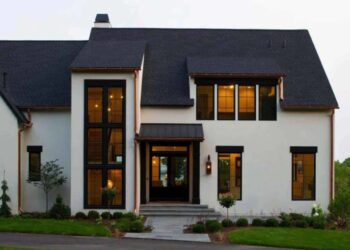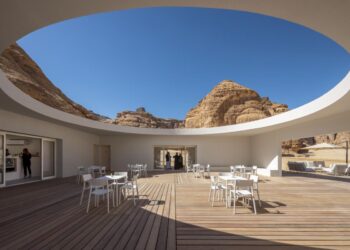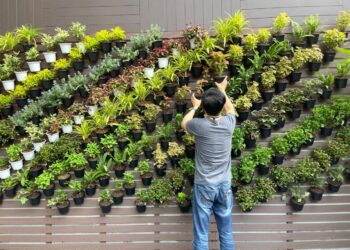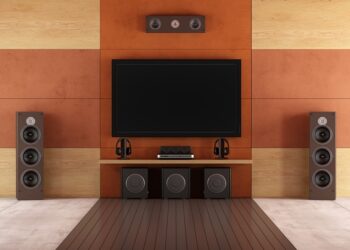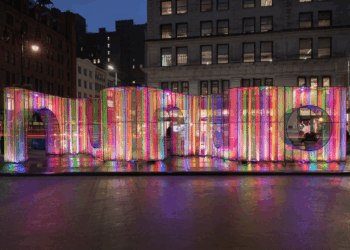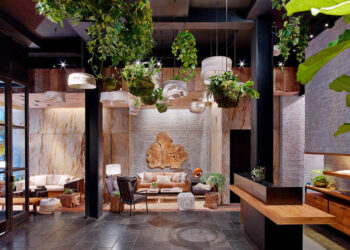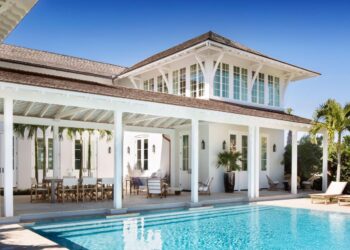Why Customization Reigns
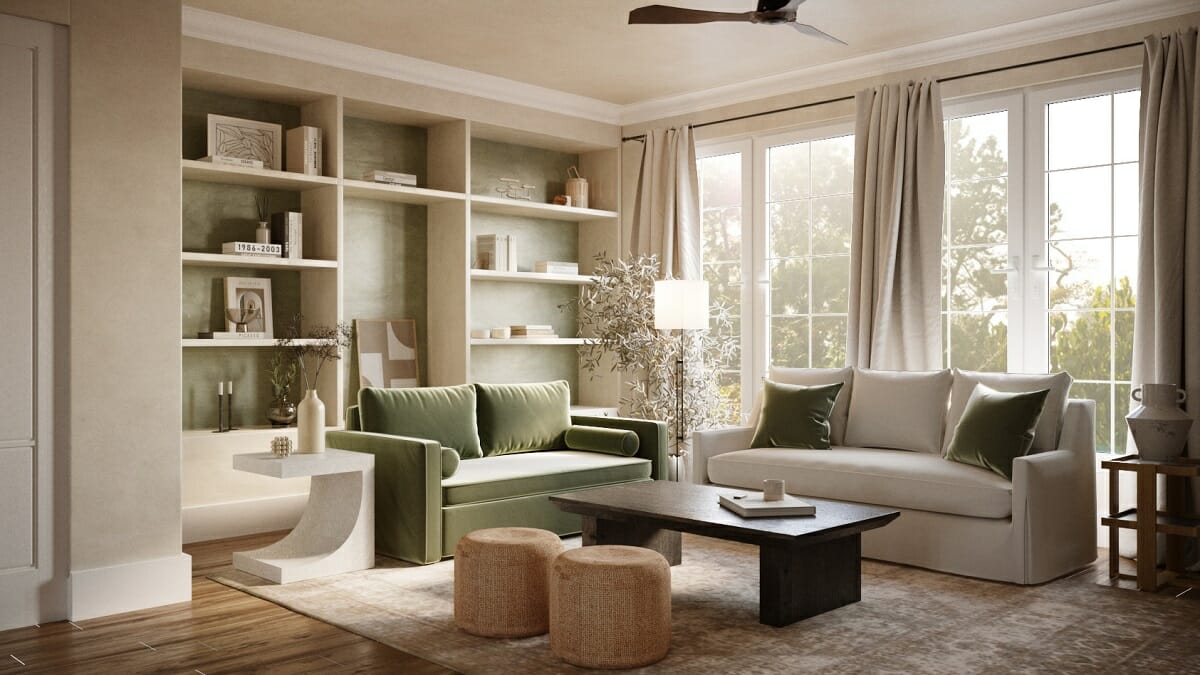
The escalating demand for bespoke design is not merely a luxurious whim; it’s a profound response to several converging societal, economic, and psychological factors that underscore the intrinsic value of personalization.
A. The Paradox of Choice and Homogenization:
A. Mass Market Saturation: In a globalized economy, consumers are inundated with choices, yet many products and designs often feel generic or mass-produced. This creates a yearning for something unique and genuinely distinctive.
B. Loss of Individuality: As design trends become globalized and readily accessible, there’s a risk of living in spaces that look similar to countless others, diminishing a sense of personal identity within one’s environment.
C. Search for Authenticity: In a world of fleeting trends and disposable goods, bespoke design offers authenticity, quality, and a narrative of unique craftsmanship that mass-produced items cannot replicate.
B. Heightened Appreciation for Craftsmanship and Quality:
A. Reaction Against Fast Fashion/Disposable Goods: There’s a growing disillusionment with low-quality, short-lifespan products. Consumers are increasingly willing to invest more in items that are built to last, expertly crafted, and possess enduring value.
B. Artisan Revival: A renewed appreciation for traditional skills, hand-finishing, and the artistry involved in creating custom pieces. This connects consumers to the human element behind the product.
C. Material Excellence: Bespoke design often involves the selection of premium, ethically sourced, and durable materials, which inherently possess superior aesthetic and functional qualities.
C. Evolving Lifestyles and Diverse Needs:
A. Personalized Living: Modern lifestyles are incredibly diverse. Standardized designs often fail to cater to specific hobbies, unique family dynamics, specialized professional needs, or individual preferences for comfort and interaction.
B. Aging in Place/Accessibility: Bespoke design can meticulously integrate accessibility features, adaptive technologies, and thoughtful layouts that ensure a space perfectly accommodates changing mobility needs or specific disabilities, enabling long-term independent living.
C. Compact Urban Living: In dense urban environments, space is a premium. Bespoke solutions can ingeniously maximize functionality within limited square footage, creating multi-functional spaces that perfectly fit the occupant’s habits.
D. The Psychology of Ownership and Connection:
A. Sense of Identity: A bespoke space is an extension of one’s personality and values. It fosters a profound sense of ownership, belonging, and psychological comfort that generic environments cannot provide.
B. Emotional Investment: Clients are deeply involved in the co-creation process, leading to a strong emotional investment in the final product. This connection enhances satisfaction and appreciation.
C. Well-being Enhancement: A space tailored to one’s exact needs and aesthetic preferences contributes significantly to overall well-being, reducing friction in daily routines and enhancing relaxation.
The Essence of Bespoke Design
Bespoke design is distinguished by several fundamental principles that guide its process and define its outcomes, emphasizing collaboration, meticulous detail, and unparalleled quality.
A. Client-Centric Collaboration
The client is not just a consumer but an active participant and muse in the design process.
A. Deep Understanding: The designer undertakes an in-depth exploration of the client’s lifestyle, habits, aspirations, preferences, pain points, and even their values and personality. This goes beyond surface-level aesthetics.
B. Iterative Dialogue: The design process involves continuous communication and feedback loops, ensuring that the evolving design accurately reflects the client’s vision and needs. It’s a fluid, responsive conversation.
C. Co-Creation: The client is an integral part of the creative journey, contributing ideas, making decisions, and shaping the design in partnership with the designer. This fosters a strong sense of ownership and satisfaction.
B. Unparalleled Customization
Every element is uniquely crafted for the specific context and individual.
A. Tailored Dimensions: Furniture, cabinetry, and architectural elements are custom-sized to perfectly fit the space and the user’s ergonomics, optimizing comfort and spatial efficiency.
B. Personalized Functionality: Designs integrate specific functional requirements unique to the client – a custom storage solution for a unique collection, a hidden workstation for a particular hobby, or accessibility features for specific mobility needs.
C. Unique Aesthetic Expression: The final aesthetic is a unique reflection of the client’s style, incorporating preferred materials, colors, textures, and forms that resonate deeply with their individual taste. It moves beyond trend-following.
C. Meticulous Craftsmanship and Quality Materials
Emphasis on superior construction and enduring value.
A. Hand-Finished Details: Bespoke pieces often involve hand-finishing, intricate joinery, and artisanal techniques that elevate quality and uniqueness beyond machine production.
B. Premium Materials: Selection of high-quality, often rare or ethically sourced, durable materials (e.g., solid hardwoods, natural stone, custom metals, fine fabrics) that are chosen for their longevity, beauty, and performance.
C. Built to Last: Bespoke items are designed and constructed for enduring quality, reducing the need for replacement and aligning with sustainable consumption. They are often viewed as heirlooms.
D. Attention to Detail: Every joint, seam, finish, and mechanism is executed with painstaking precision, reflecting a commitment to excellence that is evident in the final product.
D. Holistic Integration
Seamlessly weaving custom elements into the overall environment.
A. Contextual Harmony: Each bespoke piece or element is designed to perfectly integrate within the existing architectural context and the overall design scheme of the space, ensuring a cohesive and harmonious feel.
B. Optimized Flow: Custom layouts and built-in solutions enhance the spatial flow and functionality of the environment, making it more intuitive and comfortable to navigate.
C. Concealed Solutions: Bespoke design often excels at integrating complex functionalities discreetly – hidden storage, integrated technology, or concealed lighting that maintain a clean, uncluttered aesthetic.
E. Authenticity and Narrative
The design tells a unique story.
A. Reflection of Identity: The final design genuinely reflects the client’s personality, values, and story, making the space deeply personal and authentic.
B. Unique Narrative: Every bespoke project has a unique design journey, from initial concept to final installation, creating a narrative that adds layers of meaning and value.
C. Timelessness: While responding to individual taste, truly bespoke designs often transcend fleeting trends, possessing a timeless quality that ensures their relevance and appeal for years to come.
Bespoke Design in Diverse Applications
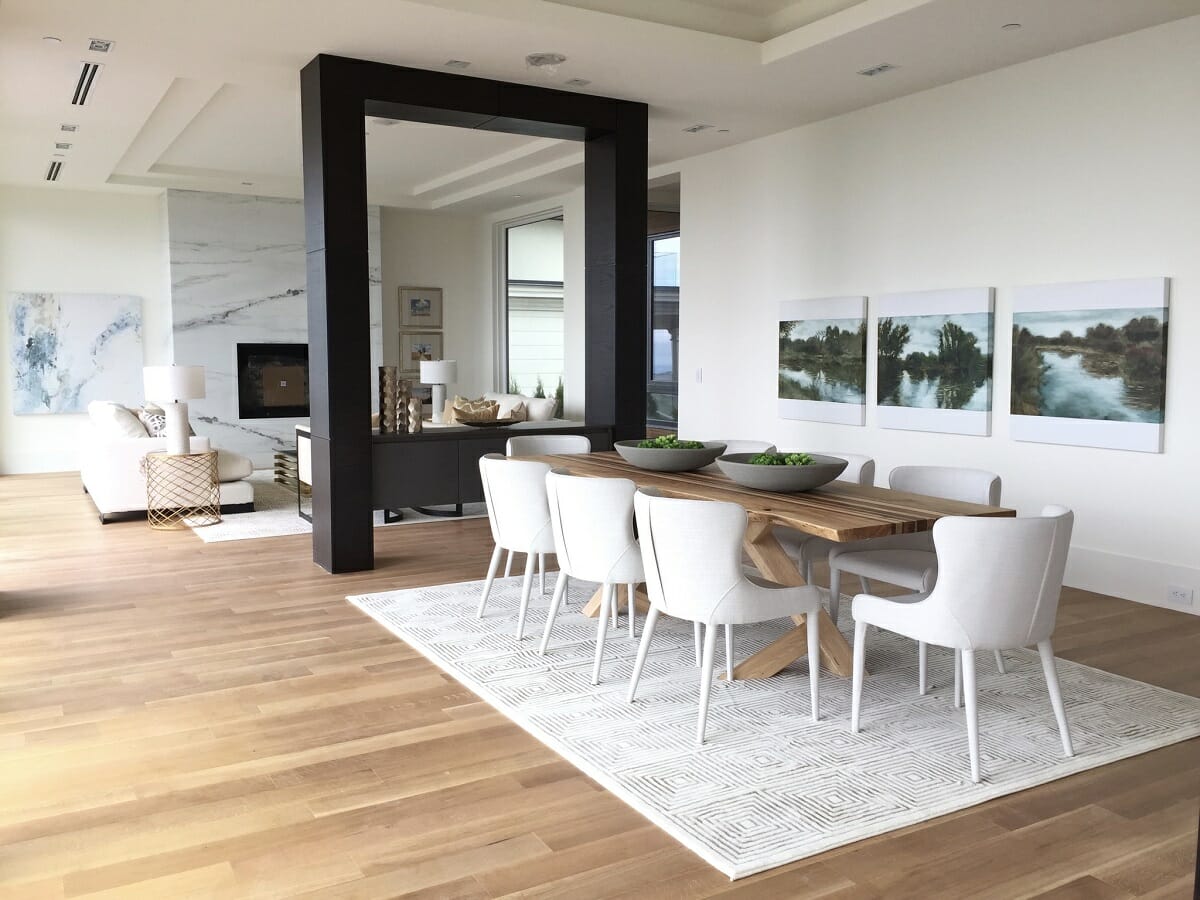
The principles of bespoke design are applied across various disciplines, transforming everything from individual objects to entire architectural spaces.
A. Bespoke Interiors (Residential)
Crafting personalized sanctuaries that perfectly align with how individuals live.
A. Custom Cabinetry and Built-Ins:
A. Kitchens: Meticulously designed cabinetry tailored to specific appliance sizes, cooking habits, and storage needs, often featuring unique finishes and intelligent internal organization systems. Islands can be custom-shaped for unique workflows or entertaining.
B. Wardrobes/Closets: Built-in closet systems designed to accommodate specific clothing collections, accessories, and organizational preferences, maximizing space and efficiency.
C. Libraries/Shelving: Custom bookshelves and integrated display units designed to fit unique collections, architectural quirks, and specific aesthetic visions.
B. Custom Furniture:
A. Seating: Sofas, chairs, or ottomans custom-sized for a specific body type, room dimension, or unique lounging preference, often upholstered in custom fabrics.
B. Tables: Dining tables, coffee tables, or desks crafted from specific materials, in bespoke dimensions, and with unique base designs to fit the aesthetic and functional needs of a space.
C. Architectural Millwork: Custom doors, window frames, wall paneling, and ceiling details that add unique character and precisely fit the architectural context.
D. Integrated Home Offices: Bespoke home office setups that are perfectly designed for specific professional needs, ergonomic requirements, and aesthetic integration into the home, often featuring hidden compartments for technology.
E. Specialty Rooms: Custom-designed wine cellars, home theaters, art studios, or hobby rooms that are meticulously tailored to specialized equipment, climate control needs, and individual passions.
B. Bespoke Commercial Spaces (Offices & Retail)
Creating unique brand experiences and highly efficient, personalized work environments.
A. Executive Offices/Boardrooms: Custom desks, seating, and integrated AV systems designed for specific ergonomic needs, executive presence, and seamless technology integration.
B. Custom Reception Areas: Unique reception desks, waiting area furniture, and lighting designed to reflect the brand’s identity and create a memorable first impression.
C. Brand-Specific Retail Experiences: Store fixtures, display cases, and interior layouts custom-designed to showcase specific products, facilitate a unique customer journey, and reinforce brand narrative beyond off-the-shelf solutions.
D. Flexible Office Components: While often modular, bespoke elements within a flexible office (e.g., custom-designed focus pods, unique collaboration hubs) can offer highly tailored functional and aesthetic benefits.
E. Hotel Lobbies and Suites: Custom-designed furniture, lighting, and architectural elements that create a unique, luxurious, and memorable guest experience, reflecting the hotel’s brand and local context.
C. Bespoke Products (Beyond Interiors)
Applying the principles to individual items.
A. Custom Clothing/Tailoring: Precisely fitted garments (suits, dresses) made to individual measurements, fabric preferences, and style details, ensuring unparalleled comfort and elegance.
B. Handmade Jewelry: Unique pieces crafted for specific stones, designs, and wearers, often with deep sentimental value.
C. Custom Vehicles: Automobiles or yachts with bespoke interiors, specific material choices, and unique functional modifications tailored to the owner’s exact requirements.
D. Specialized Tools/Equipment: Tools or machinery custom-fabricated for a very specific industrial or scientific purpose, where off-the-shelf options are insufficient.
E. Fine Art and Sculpture: Commissioned artworks that are created specifically for a space or a client’s vision, seamlessly integrating aesthetics and context.
The Compelling Benefits of Bespoke Design
The decision to invest in bespoke design yields a powerful array of advantages that extend far beyond mere visual appeal.
A. Unmatched Personalization and Identity
A. Perfect Fit: Designs are precisely tailored to the client’s unique needs, dimensions, and lifestyle, ensuring optimal comfort, functionality, and aesthetic resonance.
B. Reflection of Personality: The space or object becomes a true extension of the client’s identity, values, and aspirations, fostering a deep sense of belonging and psychological comfort.
C. Exclusivity and Originality: Each bespoke piece is unique, offering an unparalleled level of individuality and distinction that cannot be achieved with mass-produced items.
D. Emotional Connection: The collaborative design process and the resulting perfect fit create a strong emotional bond with the designed environment, enhancing satisfaction and appreciation.
B. Superior Quality and Durability
A. Premium Materials: Bespoke designs often utilize higher-grade, ethically sourced, and more durable materials, ensuring longevity and resilience.
B. Meticulous Craftsmanship: The emphasis on hand-finishing, precision joinery, and attention to detail results in a product or space of exceptional quality that is built to last for generations.
C. Reduced Waste (Long-Term): By investing in durable, high-quality pieces that perfectly fit needs, the lifecycle of products is extended, reducing the need for frequent replacements and minimizing landfill waste.
D. Better Performance: Custom solutions are optimized for specific functions, leading to superior performance compared to generic alternatives.
C. Enhanced Functionality and Efficiency
A. Optimized Space Utilization: Custom built-ins and multi-functional solutions maximize every inch of space, especially crucial in compact urban dwellings.
B. Streamlined Workflows: Bespoke office or kitchen designs can be meticulously planned to support specific tasks and workflows, enhancing productivity and reducing friction.
C. Problem-Solving: Bespoke design directly addresses unique challenges or specific needs that off-the-shelf solutions cannot solve, providing tailored, effective answers.
D. Ergonomic Precision: Furniture and workspaces can be custom-sized and adjusted to fit individual body dimensions perfectly, leading to optimal ergonomic support and reduced strain.
D. Investment Value and Sustainability
A. Increased Property Value: Homes and commercial spaces featuring high-quality bespoke elements are highly desirable and can command a premium in the real estate market.
B. Timeless Appeal: While highly personal, well-executed bespoke designs often possess a timeless quality that transcends fleeting trends, ensuring long-term aesthetic relevance.
C. Reduced Consumption: Investing in fewer, higher-quality, and perfectly suited items encourages conscious consumption and reduces the environmental impact associated with frequent purchases of disposable goods.
D. Legacy Creation: Bespoke pieces are often seen as heirlooms, passed down through generations, embodying a lasting legacy of quality and design.
Challenges and Considerations in Pursuing Bespoke Design
While the allure of bespoke design is strong, its unique nature presents certain challenges that clients and designers must navigate.
A. Higher Initial Cost: Bespoke design inherently involves greater investment due to the individualized nature of the work, the labor-intensive craftsmanship, and the use of premium materials. It’s an investment in quality, uniqueness, and longevity rather than a commodity purchase.
B. Longer Lead Times: The meticulous process of consultation, design, prototyping, fabrication, and installation means that bespoke projects typically have significantly longer lead times compared to purchasing off-the-shelf items. Patience is key.
C. Complex Decision-Making: The high degree of customization means clients are involved in numerous decisions regarding materials, finishes, dimensions, and functionalities. This can be exhilarating but also overwhelming without expert guidance.
D. Need for a Skilled Designer/Craftsman: Finding a designer or artisan with the necessary vision, communication skills, technical expertise, and proven track record in bespoke work is crucial. The quality of the final product hinges on their skill.
E. Limited Replicability: While unique, bespoke designs are by nature not easily replicated or scaled for mass production. This can be a challenge if a client later wishes to replicate elements in other properties.
The Future of Bespoke Design
The trajectory of bespoke design points towards an even deeper integration of personalization, smart technology, and sustainable craftsmanship, creating truly unparalleled environments.
A. AI-Powered Personalization & Co-Creation
A. Predictive Design: AI tools will analyze client preferences, lifestyle data (with consent), and even biometric responses to suggest hyper-personalized design options and optimize layouts for individual well-being and productivity.
B. Generative Design: AI algorithms will generate unique design solutions based on complex functional requirements and aesthetic parameters provided by the client and designer, pushing the boundaries of creativity.
C. Virtual Reality Co-Creation: Clients will experience and modify their bespoke designs in real-time virtual environments, making design decisions with unprecedented clarity and immersion, reducing costly revisions.
B. Advanced Digital Fabrication & Robotics
A. On-Demand Manufacturing: Highly customized components for bespoke projects will be efficiently produced using advanced digital fabrication techniques (e.g., multi-axis CNC milling, robotic arm fabrication, large-scale 3D printing) that enable complex forms and precise fits.
B. Hybrid Craftsmanship: The future will see a seamless blend of traditional artisanal hand-finishing with robotic precision in production, allowing for greater complexity and flawless execution of unique designs.
C. Material Innovation: Bespoke designers will leverage new sustainable materials (e.g., bio-integrated composites, advanced recycled materials) and smart materials (e.g., responsive fabrics, shape-memory alloys) to create functionally and aesthetically unique elements.
C. Regenerative Bespoke Design
A. Circular Craftsmanship: Bespoke pieces will be designed with explicit consideration for their entire lifecycle, ensuring they can be easily disassembled, repaired, reused, or recycled, minimizing waste and contributing to a circular economy.
B. Locally Sourced and Ethically Produced: A heightened emphasis on sourcing premium, sustainable, and locally available materials, reducing the environmental footprint and supporting local economies and artisans.
C. “Living” Elements Integration: Bespoke interiors will incorporate more advanced, living biophilic systems (e.g., self-sustaining indoor ecosystems, active air-purifying walls) that are custom-designed to enhance the client’s health and connect them to nature.
Conclusion
The escalating dominance of bespoke design marks a pivotal shift in our relationship with our built environments. It’s a powerful statement that in an increasingly commodified world, true value lies in individuality, unparalleled quality, and genuine connection. By meticulously crafting spaces and objects to reflect the unique spirit of their owners, bespoke design doesn’t just create beautiful things; it cultivates environments that inspire, comfort, and empower, transforming everyday living into an extraordinary, personalized experience. This is the ultimate personal touch, shaping spaces that are uniquely yours.


